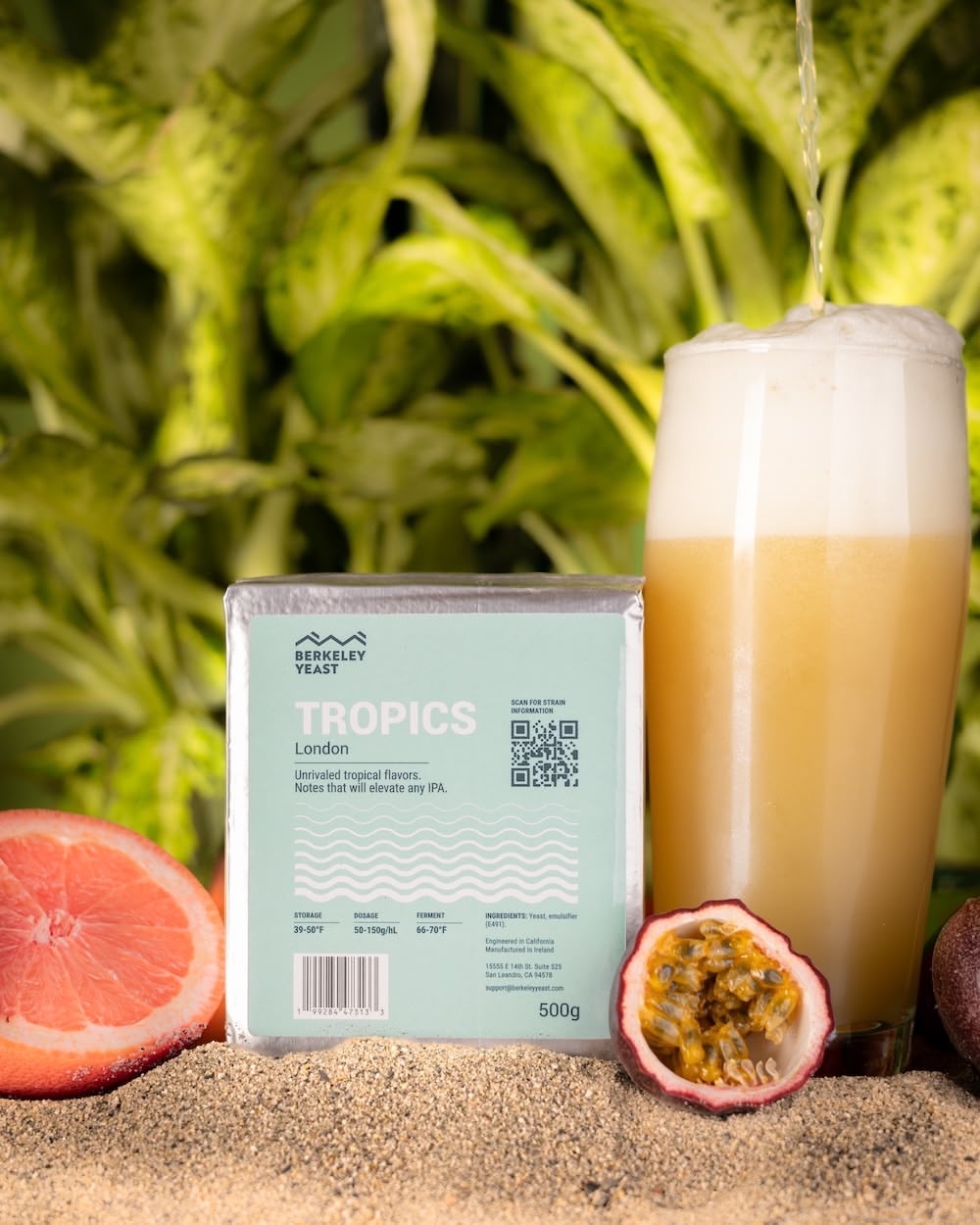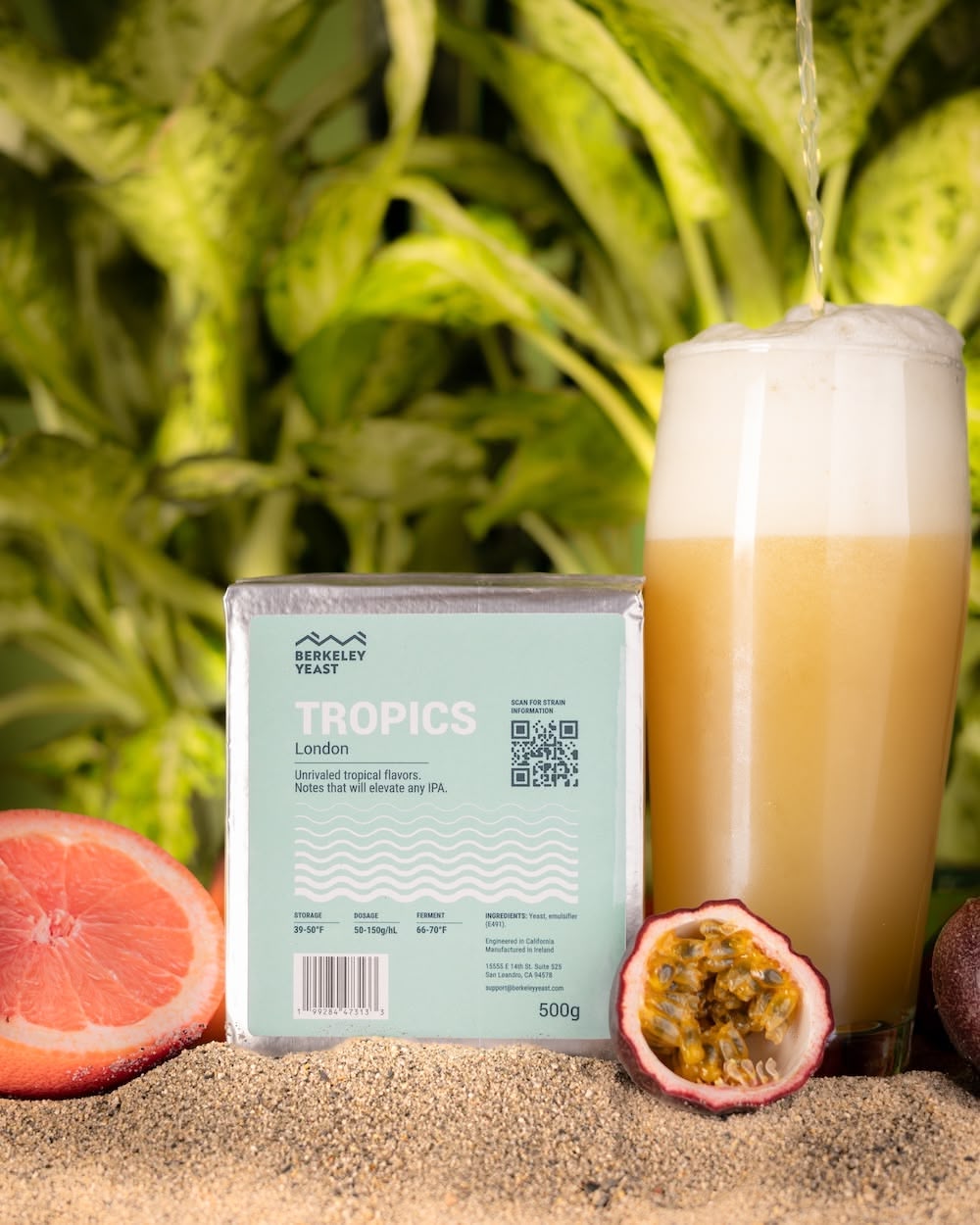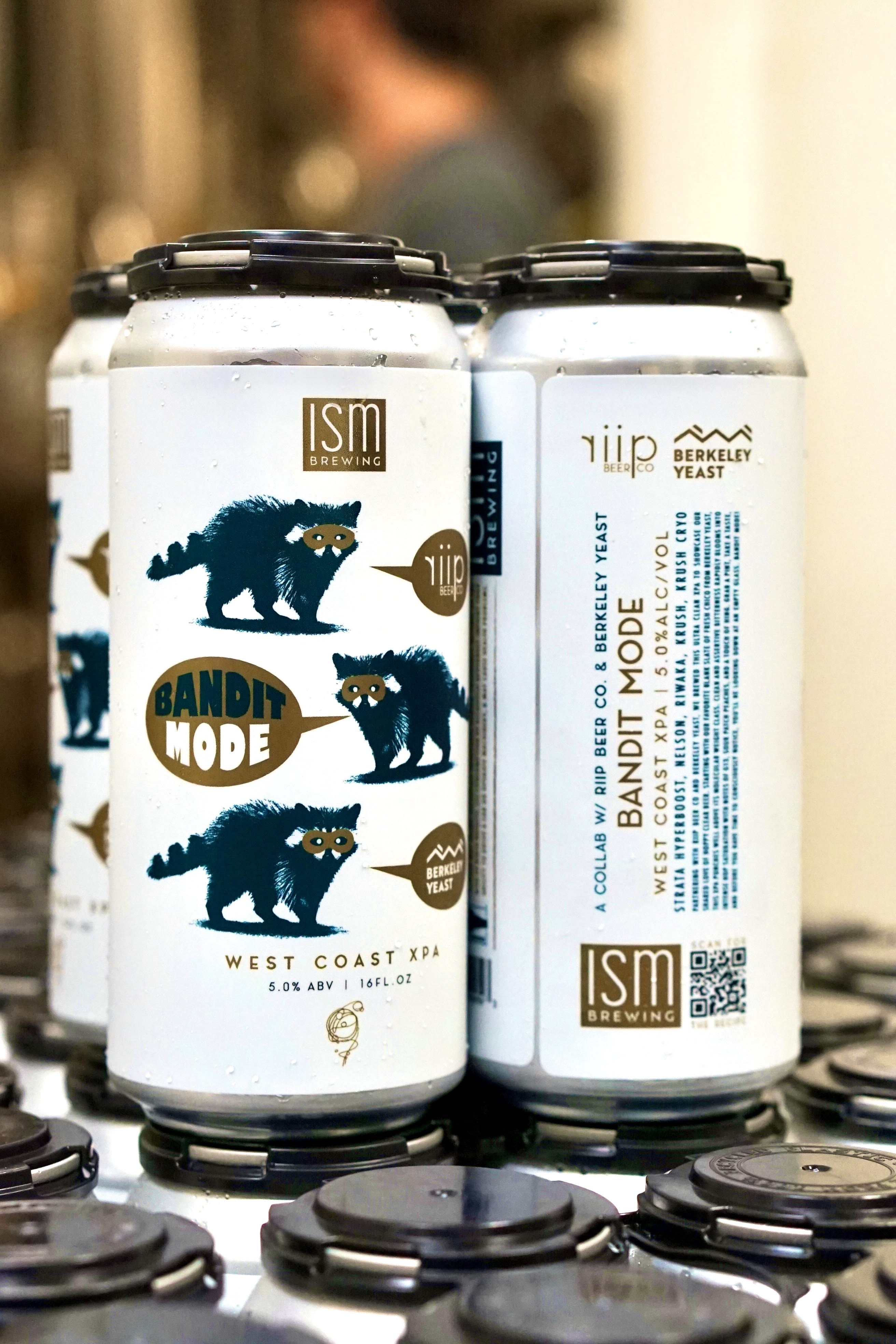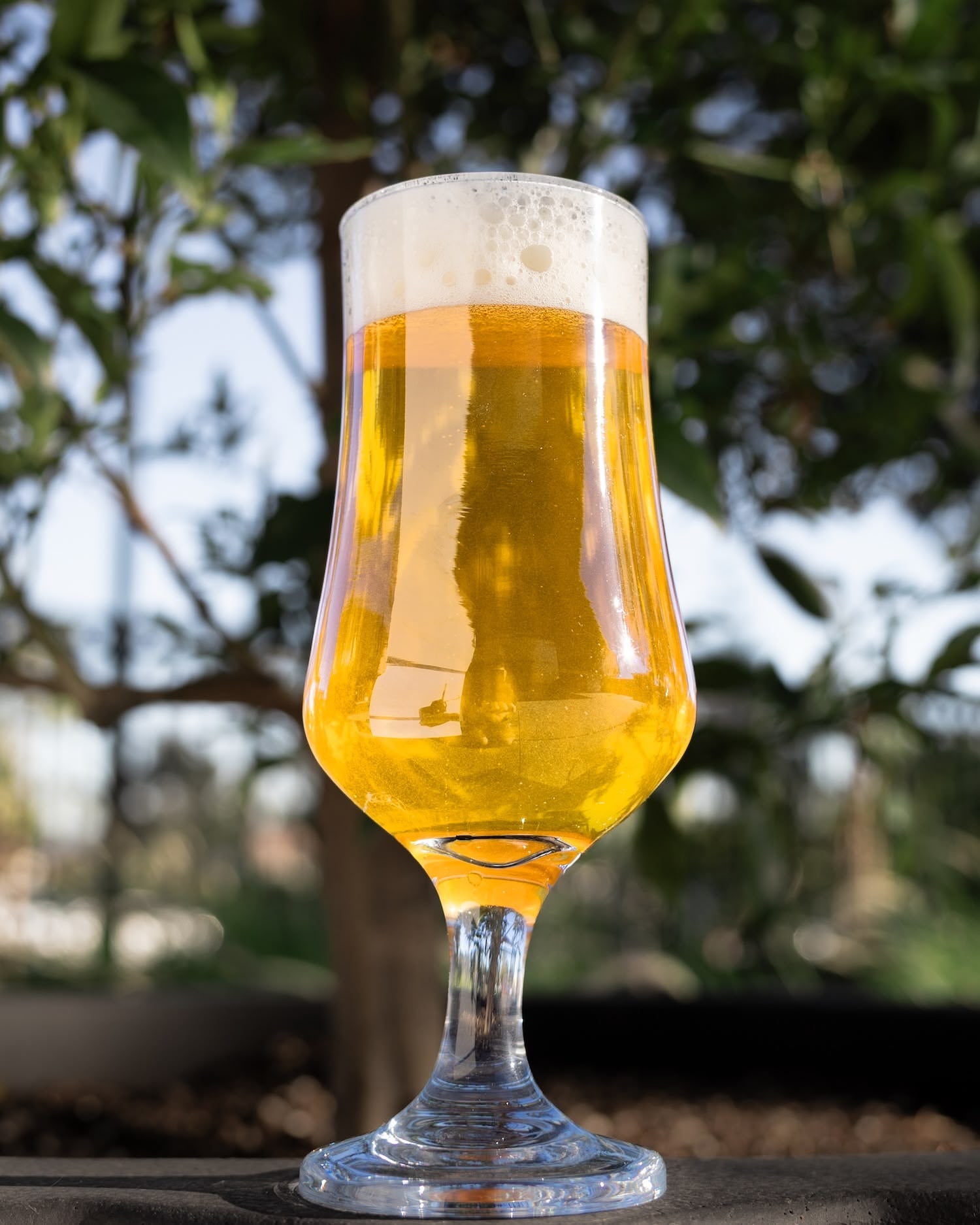About Tropics™
Dry Tropics London delivers the soft, pillowy mouthfeel and juicy character you'd expect from a top-tier London Ale strain, but with a serious upgrade: a burst of thiols that unleash vibrant, layered notes of grapefruit and passionfruit.
Upon Arrival
- Open the shipping box to verify that all yeast packages are present, undamaged, and vacuum-sealed.
- While rare, punctures can occur during transit. Do not use damaged or unsealed packs.
- Store yeast in a cool, dry location until use. Refrigeration is ideal but not required for short-term storage.
Preparing to Pitch
- When ready to use, sanitize the exterior of the package by spraying or dunking in sanitizer.
- Use a clean, sanitized blade to open the package.
- Wear sanitized gloves during handling.
- Use the full package whenever possible.
If partial use is necessary:
- Reseal immediately after opening.
- Transfer the remainder into a clean, sanitized, airtight container.
- Store cool and use as soon as possible.
Rehydration
- Rehydration is not recommended.
- Pitch the dry yeast directly into the fermentor.
- Any potential benefit from rehydration is negligible compared to the risk of contamination.
Pitch Rate Guidelines
Recommended pitch rate: 59–176 g/BBL (50–150 g/hL). See formula and table below. For first-time use, target the higher end of the range; adjust downward in future brews if performance allows.
| °Plato | Approx. SG | Pitch Rate (g/hL) | Pitch Rate (g/BBL) |
|---|---|---|---|
| 10 | 1.040 | 50 | 59 |
| 15 | 1.061 | 67 | 79 |
| 18 | 1.074 | 78 | 91 |
| 24 | 1.101 | 99 | 116 |
Nutrients
- No specific nutrient additions are required.
- Follow standard brewery nutrition practices based on wort composition and fermentation goals.
Fermentation Guidelines
- Temperature: 66–70 °F
- Aeration: Aeration is not required for standard-gravity fermentations and may cause haze or excessive yeast growth.
- If brewing at very high gravity (>1.085 / 21 °P), use compressed air, not pure oxygen, and add it 12–24 hours after pitching.
- Lag time: Typically 12–18 hours. Expect visible fermentation activity within the first day.
- If no activity after 24 hours, gently rouse the fermentor to resuspend yeast.
- If still inactive after 36 hours, check temperature, pitch rate, and oxygen exposure.
- After 48 hours with no signs of fermentation, add an additional brick of yeast.
Co-Pitching
Tropics™ London can be co-pitched with your house yeast to dial down its tropical impact.
- Adjust ratios based on desired flavor intensity: lower Tropics™ proportion for subtle fruit notes, higher for more thiol expression.
Hops & Additives
Tropics™ strains enhance tropical fruit aromas by enzymatically converting thiol precursors from malt and hops into active flavor compounds.
Hop Selection
Choose hops that complement tropical fruit character.
Recommended:
- Krush
- Mosaic
- Peacharine
- Citra
- Galaxy
- Motueka
- Nelson Sauvin (can push diesel/boxwood notes at high levels)
- Idaho 7
- Other fruit-forward hops
Avoid:
- Noble hops (Saaz, Tettnang, Spalt, Hallertauer Mittelfrüh)
- Hops not typical in hop-forward IPAs
- Grape-skin products (introduce woody flavors)
- Copper finings (bind thiols and mute flavor; use only if needed to fix sulfur)
Hop Timing
- No mash hopping required—Tropics™ produces the necessary enzymes to unlock thiol precursors.
- To boost tropical character while still repitching, use Tropics Boost™.
Tropics Boost™
- For maximum tropical expression, add Tropics Boost, an all-natural thiol precursor supplement.
- Add to chilled wort within 24 hours of pitching.
- Recommended dosage: 50–100 mL/BBL
- High intensity: 200+ mL/BBL (may produce overly thiol-forward results)
Grain Bill Guidelines
Use base malts high in thiol precursors:
- Pilsner
- Pale malt
Avoid darker kilned malts, which reduce tropical character. No special mash profile or mash hopping is needed.




